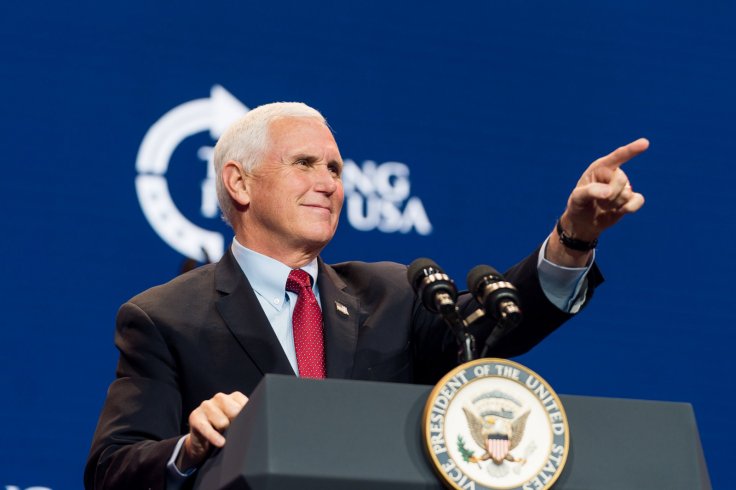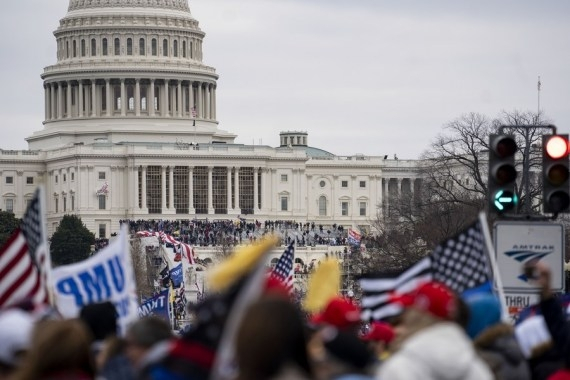The role of the Vice-President in the United States is uninspiring and inconsequential, but for Mike Pence, January 6 was an important day. He defied President Trump's call to reject the certification of president-elect Joe Biden's victory amid unprecedented violence at the Capitol. While he received praise for the act from across the political aisle, Trump lambasted his 'cowardice'.
Yet his tough day wasn't over with that; he was thrust into the limelight again with the calls for initiating the process of removal of Trump from office under 25th Amendment of the Constitution. Several Democrat leaders want to walk down this path given the charge that Trump incited violence at the Capitol.
The president has only less than two full weeks left in the office, but his detractors are determined that he pays the political cost for the ambivalence. Meanwhile, a section of the Democrats are drawing up the charter of impeachment against Trump.

Pence Deserves Credit
However, will Mike Pence thrust the sword once again at his boss? Is there a real chance of him initiating the process under 25th Amendment? It does not appear to be so.
It is true that Pence soundly rejected the President's call to block the certification of electoral college votes in Congress. But he had a well argued reason for it. He did not want to step outside the Constitutional brief, plain and simple. He deserves credit for the stance, though Trump is peeved about frayed loyalties.
it is also true that Pence ordered National Guard troops into the Capitol to beat back the protesters. Again, a right call, which will stand him in good stead should he pursue higher political office later on.

Can't Ditch Core Republicanism
These actions do not prove that Pence has turned the tables on Trump and abandoned the core Republican causes he and the President stood for and fought for in the last four years. Far from so.
It's important to note that Pence did stand alongside Trump and his backers when a dozen senators launched a bid earlier this week to block the certification of Biden.
There isn't too much of a divergence between Trump and Pence in terms of ideologies. Pence has proved that he can guard and champion the Republicanism that Trump shaped in the last four years. He can do that job in a far better fashion than perhaps Trump ever could. This is a chance for him to show to the Republican core that he can do Trump's unfinished job on more agreeable terms, and win at that.

It won't help his cause to make a further, futile, move against Trump. He has already earned the goodwill of the Democrats for standing up against Trump and protecting the Capitol. By refusing to hunt Trump with the Democrats, he will earn brownie points from the large Trump-supporting faction of the Republicans. Notably, more than half of the Republican Congressmen still support Trump, in line with what their constituents want.
The happenings of January 6 could actually turn out as Pence's stepping stone to greater political pedestals.
What is the 25th Amendment?
As per law, the Vice-President, a majority of the cabinet or Congress can give the declaration ratifying the incapacity of the President to discharge his executive powers. If this happens, the presidential powers will pass on to the Vice-President.
Here's how the Cornell Law School explains it: The 25th Amendment, proposed by Congress and ratified by the states in the aftermath of the assassination of President John F. Kennedy, provides the procedures for replacing the president or vice president in the event of death, removal, resignation, or incapacitation.
The relevant section of the 25th Amendment that Pelosi invokes is as follows:
"Whenever the Vice President and a majority of either the principal officers of the executive departments or of such other body as Congress may by law provide, transmit to the President pro tempore of the Senate and the Speaker of the House of Representatives their written declaration that the President is unable to discharge the powers and duties of his office, the Vice President shall immediately assume the powers and duties of the office as Acting President."
Was 25th Amendment Used Before?
Cornell Law School notes that the Amendment was used three times in the 1970s. The first time it was used was when Vice President Spiro Agnew resigned on October 10, 1973, and President Richard Nixon nominated Gerald R. Ford to succeed him.
The second was when President Nixon resigned his office August 9, 1974, and Vice President Ford immediately succeeded to the office and took the presidential oath of office at noon of the same day. And the third was when President Ford nominated Nelson A. Rockefeller as the Vice President.
The last time the Democrats made the move against the President, the grounds were pretty obnoxious. House Speaker Nancy Pelosi tried in vain in early October to oust President Trump from office. The move aimed at using the provisions of the 25th Amendment of the Constitution, under which a commission can be set up to advise Congress that the President is unable to discharge the powers and duties of his office.









